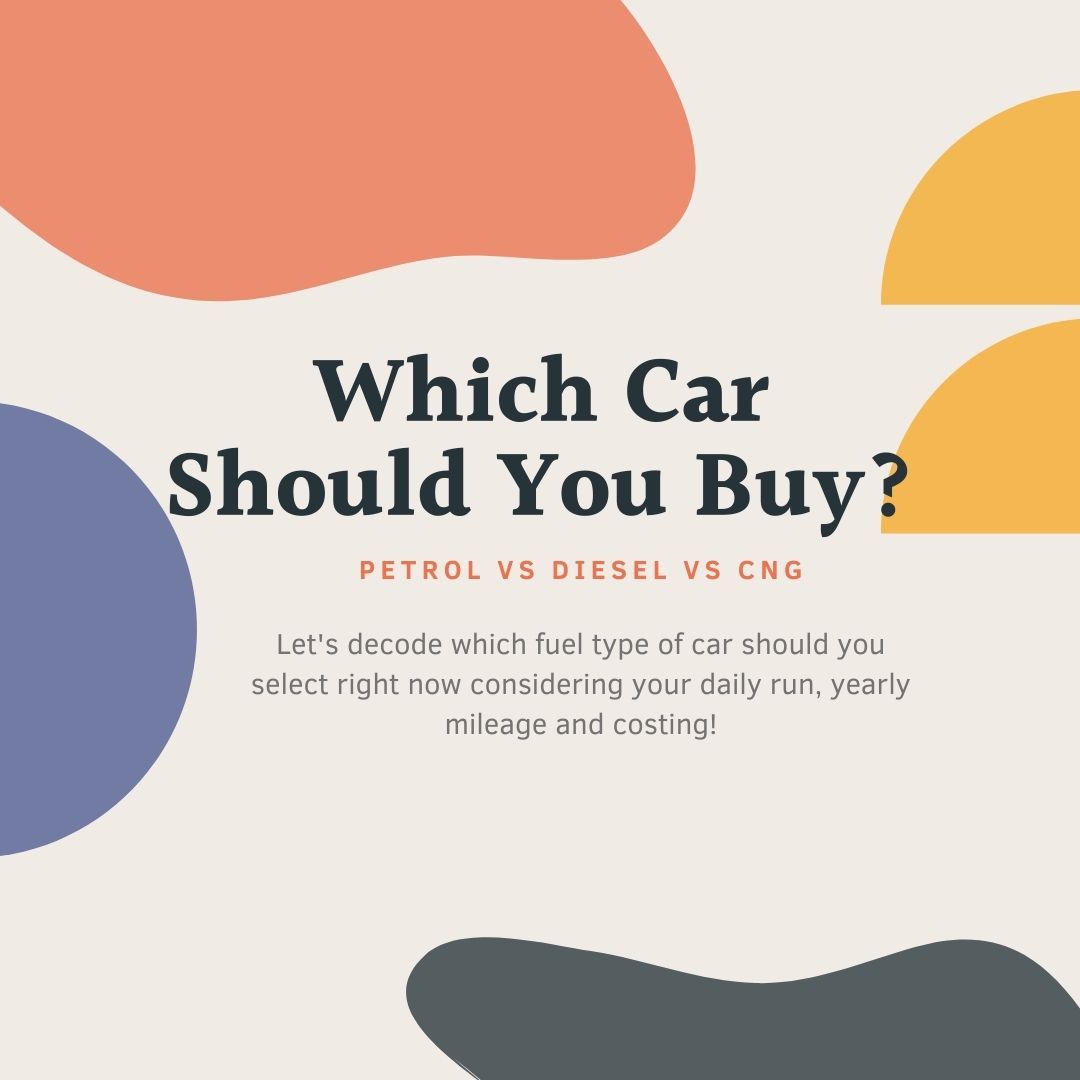Indian buyers are getting smarter day by day. They want everything in their cars at an affordable price. Now when a potential buyer steps into the car market, there are some questions like which body type? Which brand? Which fuel type? Should it be a new or a second-hand one? So today we are trying out petrol vs CNG vs diesel.
Now, leave all the questions for next time, let’s discuss today’s hot topic. Should one buy a petrol car or a diesel car? Or should someone install a CNG kit in their petrol car or not?
As we know if a petrol car has a price tag of ₹X for a model, it will cost approximately 1.5 lakhs more for the same car’s diesel variant. And, a CNG kit will cost you around ₹50,000. The company-fitted CNG kits are safe as they have to obey all the regulations and terms that the Government has ordered them to follow. Plus, there is N number of companies available in the market that also help you get a CNG kit fitted from the local level garage as well.
Let’s look over some current scenario
*Petrol price = ₹95
*Diesel price = ₹90
*CNG price = ₹60(approximated prices taken)
Taking a little help from math; let us assume our yearly mileage is around 10,000 km. If you take the efficiency of a petrol car to around 18 kmpl, diesel’s 20 kmpl, and CNG’s 23 kmpl, we finally end up using about ₹52,780 in petrol, ₹45,000 in diesel, and ₹26,088 in CNG cars.
If we double the mileage to 20,000 km, then ₹1,05,560 for petrol, ₹90,000 in diesel and ₹52,176 for CNG.
So, let us count the difference between petrol and diesel for 10,000 km= ₹7,780 and for 20,000 km = ₹15,560
For petrol and CNG difference for 10,000 km= ₹26,692 and for 20,000 km= ₹53,384
Results:
If you have a mileage of 20,000 km per year, you’ll need approximately 10 years to cover that 1.5 lakh rupees extra paid over a petrol car to buy you a diesel mileage muncher. Do not consider a diesel vehicle if your mileage is less than 15,000 km per year as then you will need many more years to cover that gap between petrol and diesel car prices.
Similarly, for a CNG kit, you are paying around ₹53,384; so for 20,000 km per year, you’ll be able to cover that price within one and a half years and calculate on 10,000 km per year.
Final verdict:
Diesel vs Petrol:
For taxi drivers and regular long-distance travelers, Diesel cars are the best keeping in mind that they will keep their vehicles for the long term and the efficiency of diesel is higher than petrol. Thus you will not need to stop frequently to fill up diesel at pumps and it will not dig a large hole in your pocket.
- Diesel cars come with better suspensions as they have to accommodate higher weight than the petrol ones so they give better ride quality compared to petrol cars.
- But remember that you will have to spend more on diesel cars every year for maintenance.
- Diesel cars add more CO2 and NOx to the atmosphere which pollutes the air and it is ultimately dangerous for health.
CNG vs Petrol:
If you travel intercity regularly and daily travel is more than 45 km, you can opt for a CNG kit. Equally, they will help you to save money after 2 years of installation.
- However, a CNG car needs to refuel its tank after around 120-150km so they are not good for long-distance tours as you’ll need to find pumps regularly.
- Even CNG cars lose their pickup and power by around 3-10%, so for enthusiast drivers, it won’t be fun. CNG kits eat up luggage space and family travelers have to suffer for that.
- Factory-made car suspensions are not designed to accommodate that extra load of the car.
The market is also ready to adopt electric vehicles at a scale and most urban buyers will surely turn to them in the coming time. Let’s hope we get to see a cleaner and greener future.
Contact us: [email protected]





